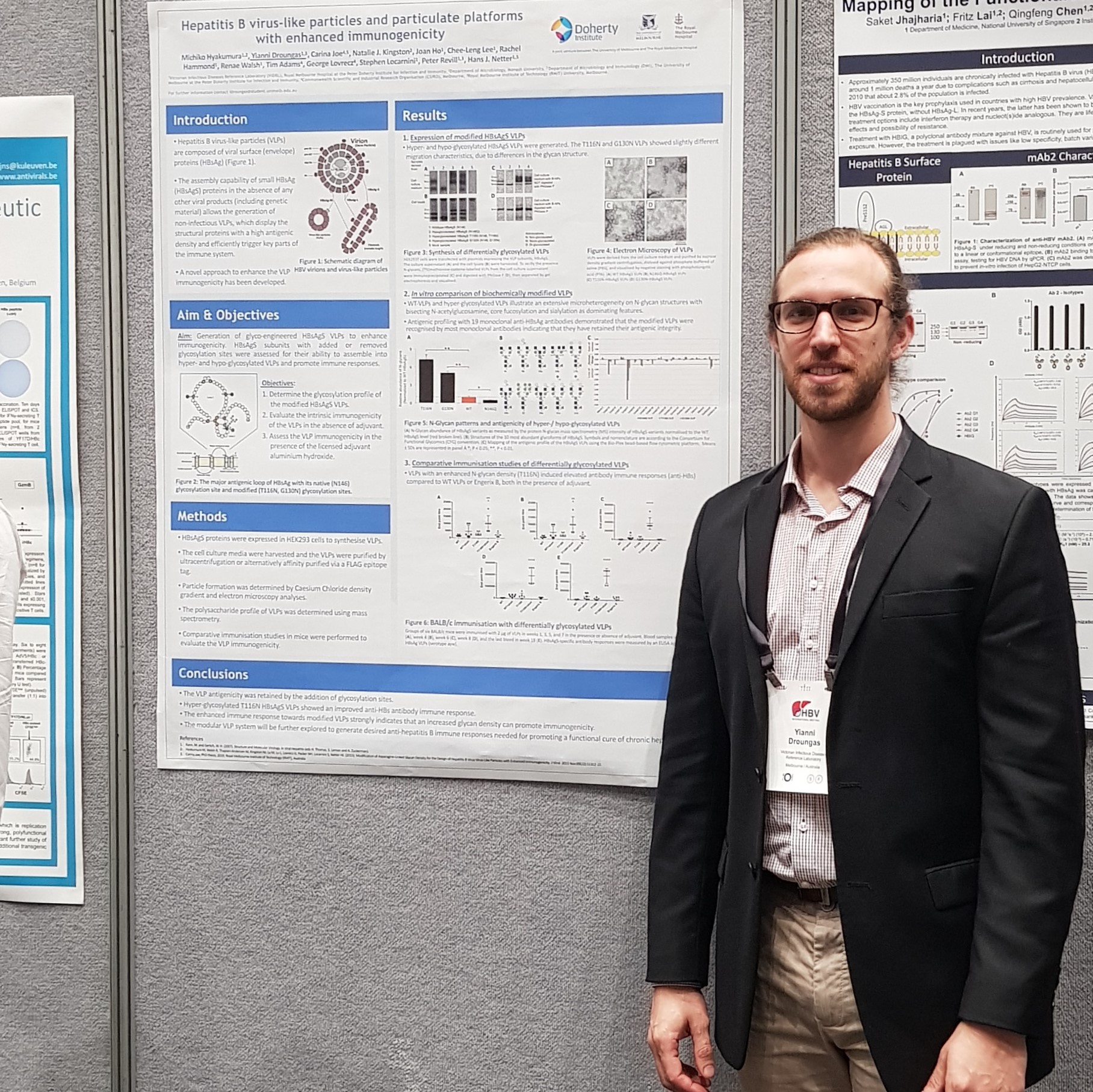08 Oct 2019
2019 International HBV Meeting - Yianni Droungas ‘Hep B Briefing’
Leading hepatitis B (HBV) experts converged on Melbourne for the International HBV Meeting. Here, PhD Student Yianni Droungas shares his insights on day three of the meeting.
8am
The Goldfields Theatre at the Melbourne Convention and Exhibition Centre was a full house, as over 500 delegates gathered up with anticipation for a day devoted to the immunological aspects of the hepatitis B virus (HBV) infection.
World-renowned names on the field; including Professor Kuman Visvanathan (St. Vincents Hospital, Australia), Professor Luca Guidotti (San Raffaele Institute, Italy), Professor Ulrike Protzer (Technical University of Munich, Germany), Professor Antonio Bertoletti (Duke-NUS Medical School, Signapore), as well as the Doherty Institute’s Professor Stephen Locarnini, were at the ready to fire away with questions and argue their personal opinions on whether a dysfunction of the innate or the adaptive immune response is ultimately responsible for progression into chronic HBV, a disease that affects over 258 million people globally.
The atmosphere was electrified as the brightest minds on the field attempted to persuade the rest on their personal interpretations of the HBV immune responses.
The general consensus, simple: a better understanding on all aspects of the HBV-specific immune responses will inarguably be a key determinant to the discovery of a HBV cure over the next decade.
This perception sets up the grounds for an area that is expected to blossom over the next few years, as many researchers are optimistic that a functional cure approach is an achievable target within the next decade.
Amongst others, a talk that grabbed my attention focused on the crucial role the gut microbiota play in shaping the liver immune response.
The findings concluded that a reduction in the diversity of gut microbiota leads to an immunosuppressive liver microenvironment, including the reduction of Kupffer cells, a subtype of macrophages found in the liver, ultimately attributing to immune dysfunction and HBV persistence.
A highlight of the adaptive immunity session was a presentation focusing on the persistent high antigen load as a key determinant of functional T-cell impairment characterised by dysfunctional HBV-specific CD8 T-cells.
This prevents the host from clearing viral infection and consequently allow the virus to remain undetected and establish a chronic status.

Yianni presents his poster on day 3 of the International HBV Meeting
1:30pm
Day 3 also hosted another round of mini-poster tours, wherein a few selected poster presenters were given the opportunity for an on-the-spot 5 minutes presentation of their work.
3:00pm
Later in the afternoon, our second invited speaker, Professor Feng Shao from China gave a very exciting and comprehensive presentation on pyroptosis – an inflammatory form of cell death - and its role to innate immunity and cancer.
7:00pm
The day concluded with the customary banquet at ZINC restaurant at Federation Square, accompanied by warm weather and views of the Yarra River. During the evening, the 2019 Distinguished Award in Hepatitis B Research was presented to Dr. Marie-Annick Buendia (Pasteur Institute, France) in recognition of her work as a pioneer in HBV and hepatocellular carcinoma research. The night continued with a local DJ setting the vibe for a multicultural exchange of dance moves on some classic hits.


